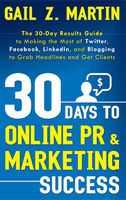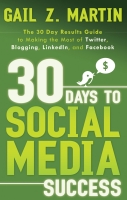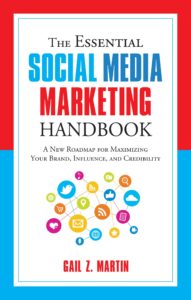I’ve talked about the networking value of recommendations on LinkedIn. Gathering online recommendations via LinkedIn is also a way to solidify your online branding and actively manage your reputation. Don’t be shy about asking former co-workers, bosses, colleagues and clients to provide a recommendation if you had a positive working experience with them. That’s part of the LinkedIn culture. You’ll want to make sure you have plenty of recommendations for your current role, but you may want to also actively seek out recommendations for prior roles to bolster your credibility and show the depth of your expertise.
Naymz.com is similar in some ways to LinkedIn (extensive profile, forums, online networking), but it goes further to help you actively manage your brand and reputation. Naymz has what it calls a “RepScore Ecosystem” where you aren’t just asking for a recommendation from former colleagues and clients; you’re asking for them to provide anonymous feedback on your honesty and ethics. Naymz also has its own “Reputation Monitor” to provide you with yet another stream of information regarding what’s been said about you online. Naymz also lets you know when your profile has been visited, although it does not tell you who checked you out.
What happens when a negative comment is posted on a ratings site and you can’t get it removed or retracted, but it’s not serious enough to sue for defamation? One tactic is to make the comment more difficult to find by increasing the searchability of other, more positive content. The Internet favors recent and highly targeted information, rewarding it by pushing it to the top of the search results. This pushes older content off the first pages of results, and few searchers bother to go more than one or two pages deep.
How do you do this? One tactic is to ask your clients and professional friends to add ratings of their own (you don’t have to disclose the reason behind your timing for the request). You can spiff up your Search Engine Optimization (SEO) on your most relevant sites, like your home page and your blog, assuring that they jump to the top of the search results. Or, you can hire a PR agency or reputation management firm to make positive posts on your behalf on a large enough number of sites that the sheer volume of new positive mentions pushes old copy off the first page of search results.
Use this last tactic (hired guns) with caution. Mobilizing actual clients, friends and even family to post genuine testimonials or positive reviews is still authentic and organic, even if you reminded them to do so. (Never offer rewards in exchange for positive comments.) Hiring people to manufacture testimonials is unethical, and you’ll be found out eventually, which will send your online reputation plummeting. If you do decide to use a publicist, a better tactic would be to post a wealth of factual, but positive, information (such as verifiable high satisfaction ratings or award announcements) or repeat testimonials or positive reviews from legitimate clients and reviewers. Just creating a blizzard of new, positive, highly relevant and keyword-optimized informative posts can go far to push down a negative review.
Yet another reputation management tactic involves making it difficult for anyone to create a profile or Web site using your name or products by claiming them yourself. Some people make it a practice to buy up all of the domain names available for their own name or their products, such as the .biz, .tv and other domain suffixes. This keeps cyber-squatters from purchasing these domains and attempting to sell them back to you later at an inflated cost, or using them to create fake sites purporting to be from you. If you consider this tactic, remember that you’ll have to pay domain registration fees annually, so buying up dozens of URLs that you never intend to use can get expensive.
If you don’t have the time to actively monitor and manage your reputation, there are companies that will do it for you. Some of these specialize in particular industries, such as hospitality or construction, while others serve a variety of business types. Services range from monitoring and reporting to assistance in handling complaints or dealing with malicious comments. Fees vary according to the services provided. If you decide to use a monitoring and response agency, do your homework before making a commitment, and check out the reputation of the company online before hiring them to work on your behalf. Some reputation management companies have been caught using unethical strong arm techniques against people who have posted legitimate complaints that were well within their constitutional rights. There’s a big different between hiring someone to help you keep an eye on what’s being said and employing cyber goons to intimidate or harass consumers who have merely stated their opinions. The best way to protect your online reputation is to always deal ethically, both online and offline. Keep your word, don’t overly hype your products, and deliver what you promise. If something goes wrong, do everything you can to make the situation right. You’re far better off putting effort into delighting customers and running a clean operation than to invest resources into cleaning up avoidable messes or attempting a cover-up. Nothing stays hidden for long in today’s online society. Honesty (and vigilance) are your best online reputation management tools.
Excerpted from 30 Days to Virtual Productivity Success by Gail Z. Martin







